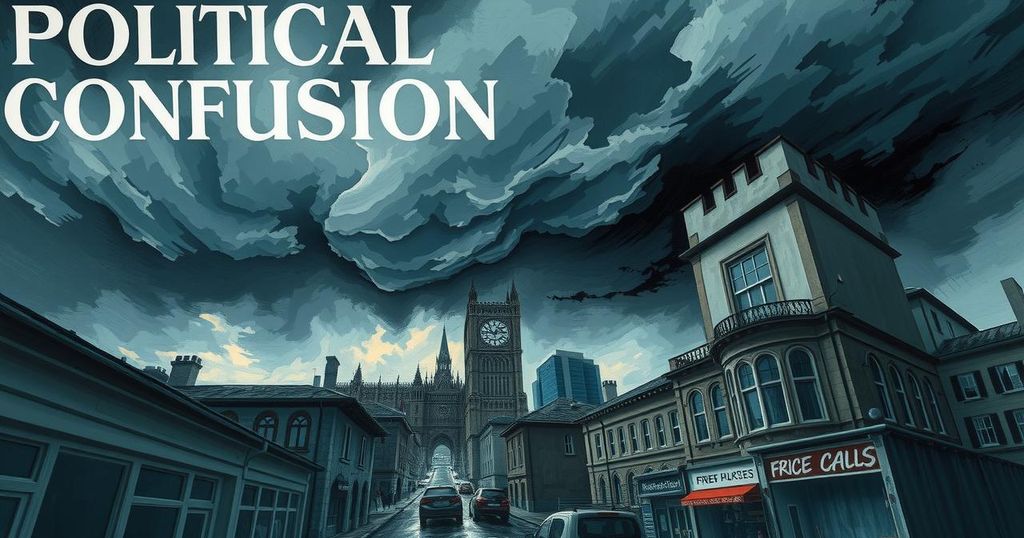Brazil’s Lula Faces Approval Crisis Amid Rising Costs and Crime
President Luiz Inácio Lula da Silva’s approval ratings have plummeted to a record low of 24%, attributed to rising food prices and increasing crime concerns. Despite a favorable economic outlook, discontent is growing among key demographic groups. The government is attempting to regain support through public events and proposed tax cuts for low-income individuals, but uncertainty surrounds Lula’s political future.
Brazil’s President Luiz Inácio Lula da Silva, once lauded as the world’s most popular politician by President Barack Obama, is now experiencing a significant decline in approval ratings. Currently, Lula’s ratings have plummeted to an unprecedented 24%, according to Datafolha, marking the lowest point across his three administrations since 2003. Despite improvements in the economy and decreasing unemployment, the public expresses dissatisfaction over rising food prices and security issues.
In response to his dwindling popularity, the government is organizing an event in Brasilia to showcase its achievements over the past two years, as stated by the presidential palace. This initiative reflects Lula’s strategic attempt to regain public support amidst a challenging political climate and the impending decision regarding his re-election candidacy in the upcoming year.
A significant factor contributing to Lula’s declining popularity is the surge in food prices, particularly impacting low-income groups who have historically constituted his support base. Food and beverage costs have risen nearly 8% in 2024 compared to the previous year. Professor Carla Beni from the Getulio Vargas Foundation attributed this inflation mainly to climate change effects on crops and currency fluctuations.
Recent surveys indicate a marked increase in discontent, especially among women, Black citizens, and the residents of Brazil’s impoverished northeast. Disapproval ratings in that region jumped from 26% to 46% in just six months. Citizens express heightened concerns not only about rising expenses but also about the prevailing atmosphere of insecurity, as highlighted by Anderson Vianna, who remarked on the dangerous living conditions in Rio de Janeiro.
In response to food inflation, Vice President Geraldo Alckmin announced plans to eliminate import taxes on essential products. However, political analyst João Feres noted that while the government has several public policies, effective communication regarding their outcomes remains a critical issue. A prior decision to enhance financial transaction oversight had adverse effects due to misinformation campaigns by opposing political factions.
Crime and safety pose additional challenges for Lula’s administration. Recent polling indicates that concerns about violence have surged since restrictions from the COVID-19 pandemic were lifted. Events, such as a viral video showing a phone theft at a public festival, exemplify the public’s growing anxiety over safety, prompting Lula to assert a tough stance against criminal activity.
To regain voter trust, Lula’s government has proposed an income tax cut aimed at low-income individuals, sending a bill to Congress to exempt those earning up to 5,000 reais monthly from taxation. Analysts suggest that if passed, this measure could positively influence Lula’s public image, although its effectiveness in restoring his popularity remains uncertain in a rapidly evolving political landscape. Many constituents, such as Vianna, express disappointment and signify a desire for political change, stating, “We need a renewal.”
In summary, President Lula’s approval ratings have sharply declined due to rising food prices, safety concerns, and ineffective communication of governmental policies. The government is actively seeking to regain public support through strategic events and legislative proposals aimed at reducing taxes for the poor. However, the political landscape remains volatile, with significant skepticism among constituents regarding Lula’s future candidacy and the effectiveness of these efforts to restore his popularity.
Original Source: www.idahostatejournal.com








Post Comment